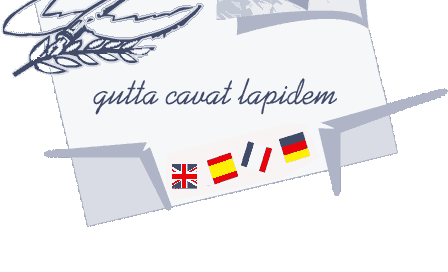© Tribune de Genève; 02.05.2006;
page 13
LE COURRIER DES LECTEURS
Mardi 2 mai 2006
Iran-Etats-Unis: qui est fauteur de guerre?
Grand-Saconnex, 30 avril. - La question n'est pas jusqu'où
on va permettre à l'Iran de provoquer, mais jusqu'où
on va permettre aux Etats-Unis de nous manipuler et de faire la
propagande pour la guerre, ce qui tombe sous le coup de l'article
20 du Pacte des Nations Unies relatif aux droits civils et politiques.
Même si M. Ahmadinejad ne nous est guère sympa, il
faut savoir que selon l'article 4 de la Convention sur la non-prolifération,
l'Iran a le droit à la recherche nucléaire, et que
si Téhéran voulait construire une arme nucléaire,
il pourrait invoquer l'article 10 de la Convention et la dénoncer,
comme l'a déjà fait la Corée du Nord en 2003,
dont on ne parle plus.
Le principe d'égalité des Etats est un principe de
jus cogens, et il faut se rappeler que le Pakistan, l'Inde, Israël
etc. ont l'arme nucléaire aussi. Pour ma part, je préfère
dissuader l'Iran d'en avoir une, mais cela comporte la négociation
de bonne foi et avec la même mesure que l'on utilise ailleurs.
Rappelons nous aussi que l'article 2, alinéa 4, de la Charte
des Nations unies stipule «les membres de l'organisation s'abstiennent,
dans leurs relations internationales, de recourir à la menace
ou à l'emploi de la force». Donc, c'est plutôt
mon pays, les Etats-Unis, qui est en train de violer le droit international.
La guerre n'est pas une option.
Alfred de Zayas
On 9 May I added this comment to the BBC blog on Iran
I am an American citizen and a retired UN senior lawyer. Pursuant
to article 2, paragraph 3, of the UN Charter, international disputes
must be settled in a peaceful manner. The Iran letter contributes
to a peaceful discussion among sovereign States and cannot be dismissed
out of hand. Article 2, paragraph 4, of the UN Charter prohibits
not only the use of force, but also the threat of the use of force.
Pursuant to article 51 of the Charter no force can be used except
in cases of self defence. There is no justification for the United
States nor for the European Union to threaten Iran nor to use force
against Iran. The Non Proliferation Treaty is not customary international
law, and specifically allows denunciation under article 10. North
Korea did so in 2003, and no one talks about that today. Also in
2003 the United States and Great Britain dragged a so called coalition
of the willing into a war of aggression against Iraq, which Secretary
General Kofi Annan called "incompatible with the Charter"
in 2003 and "illegal" in 2004. Bearing in mind that preventive
war is not allowed under international law, and that the main purpose
of the United Nations is to settle disputes peacefully, there is
no other option but to negotiate in good faith. I see little good
faith on the part of my own government, and wonder what is left,
if anything, of the Nuremberg principles, in particular of the condemnation
of aggressive war as an international crime.
|






